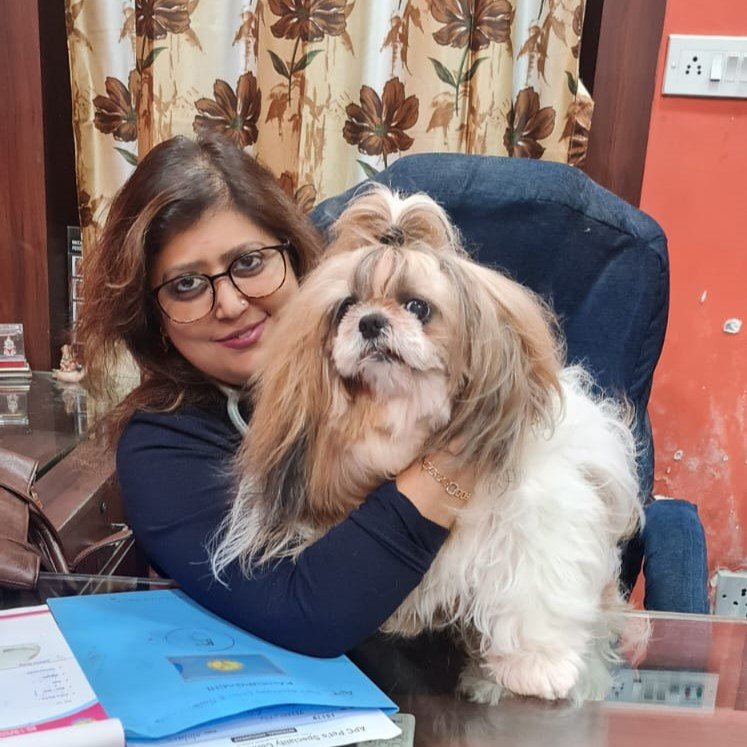-
P, 193, A, Ramakrishna Samadhi Rd,Kolkata- 700054
P, 193, A, Ramakrishna Samadhi Rd,Kolkata- 700054
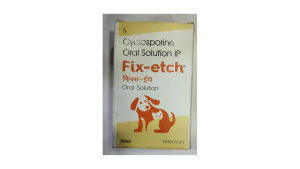
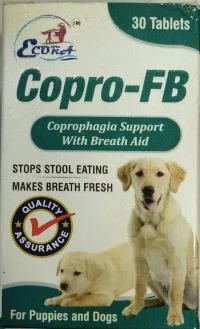




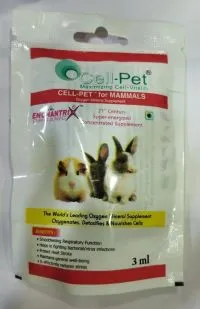
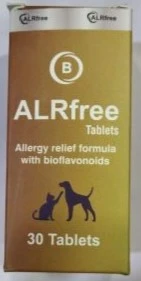
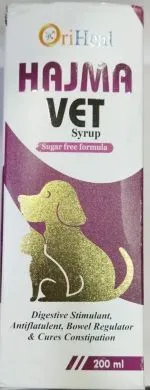
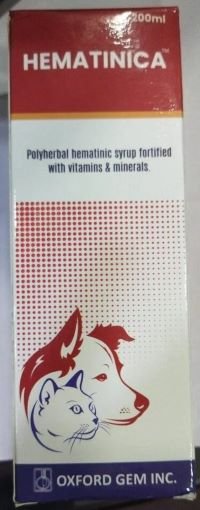
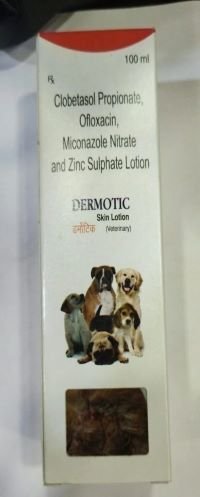
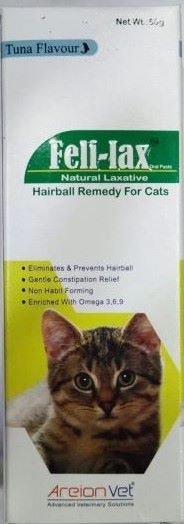
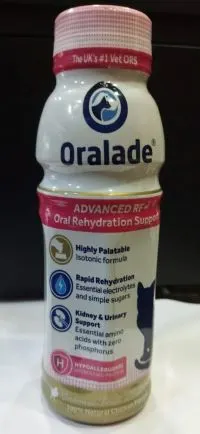
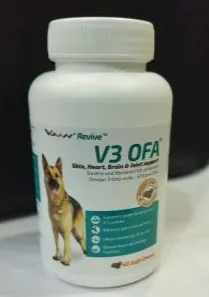
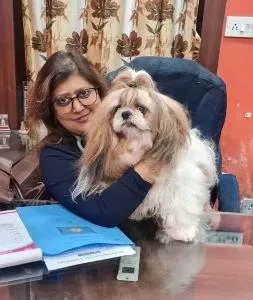
At APC Pet Clinic, one of the best pet clinic in Kolkata, we’re deeply committed to the health and happiness of your pets. With our three pet clinics conveniently located in Kankurgachi, Patuli, and Gariahat, we are always close by to serve the needs of pet owners in the greater Kolkata and near by areas.
Our pet clinics are renowned for our expertise in emergency and critical care, offering specialized treatments and compassionate support during your pet’s most crucial moments. Our team of experienced veterinarians and skilled pet care doctors in Kolkata are dedicated to delivering the highest standard of pet care, combining advanced medical knowledge with a genuine love for pets.
Many pet lovers worried about their loved one, how they can take care of their pet, because as human beings pets also suffered disease. A professional pet clinic can help with this. Here you can get all types of pet treatment.
From routine check-ups to surgical procedures, we provide a full spectrum of pet care services in Kolkata to meet your pet's health needs at every stage of life. At APC Pet Clinic, we understand the special bond between you and your pet, and we treat each patient with the best care, respect, and highest attention they deserve. With a warm and welcoming environment, state-of-the-art facilities, and a focus on preventive care, we strive to make every visit as stress-free as possible for both you and your furry friend. Visit us and discover why APC Pet Clinic is a trusted name in pet care clinics across Kolkata.
Give your pet the ultimate spa day at the best pet clinic in Kolkata! APC Pet Clinic offers expert grooming services, including bathing, trimming, nail clipping, and skin care, all with your pet’s comfort and hygiene in mind. Choose APC Pet Clinic for exceptional pet grooming in Kolkata!
Our pet hotel provides a safe, caring environment where your pets can feel at home. With cozy accommodations and attentive staff, APC Pet Clinic’s Pet Hotel is the top choice for pet boarding in Kolkata!
Protect your pet’s health with preventive care. APC Pet Clinic’s vaccination services keep your pets safe from diseases. Trust APC Pet Clinic for reliable pet vaccination care in Kolkata!
We offer a full range of pet care products to support your pet’s well-being. From premium food to grooming essentials, APC Pet Clinic ensures quality. Choose us for top-quality pet care products in Kolkata!
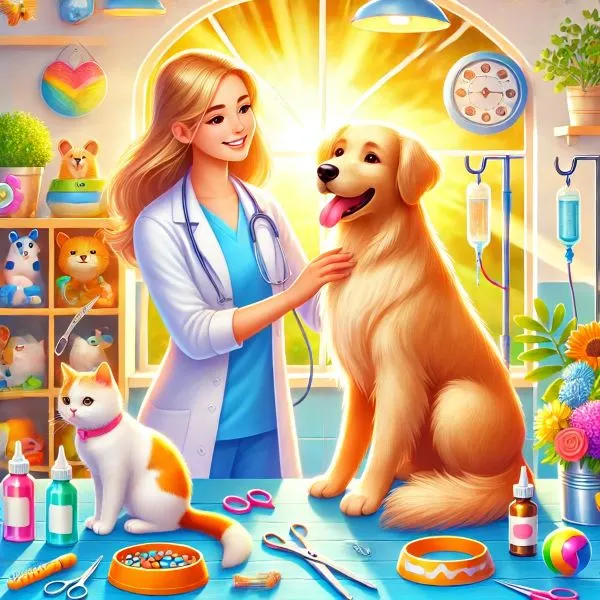
A pet lover can get best Pet Diagnostics for preventing any further complications of your pets.
APC pet clinic is a multi-speciality pet clinic in kolkata for traditional pets like dogs, cats etc located in kankurgachi, patuli, gariahat
Healthy Formula
Help line No:
+91 98316 45212
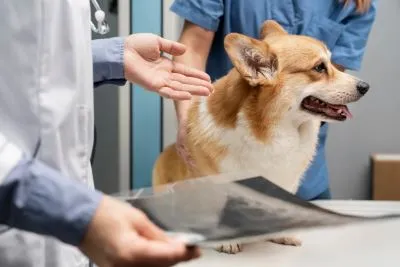
Regular check-ups, vaccinations, and parasite control to maintain optimal health.

State-of-the-art diagnostic facilities for accurate assessments and timely treatments.

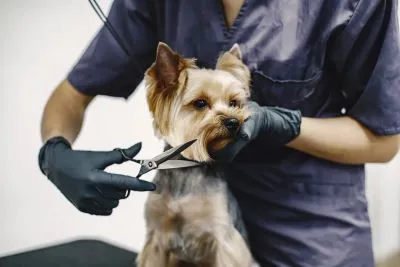
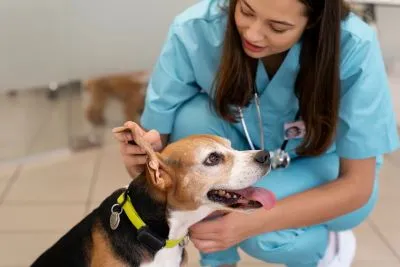
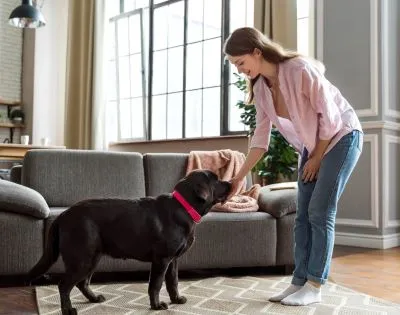
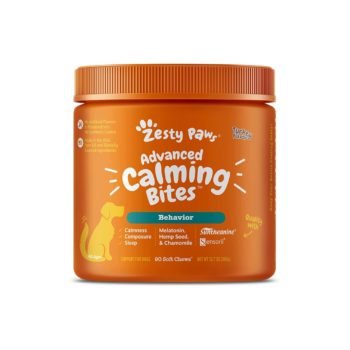
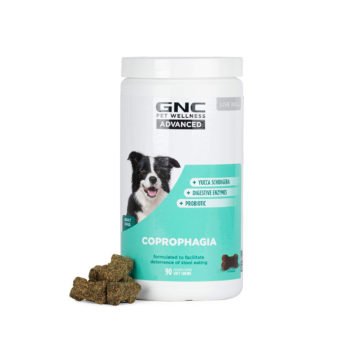

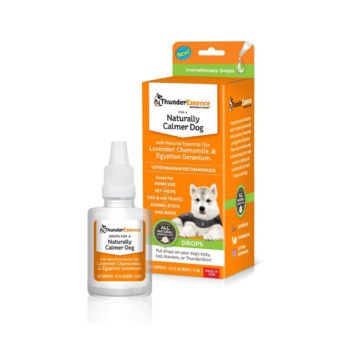
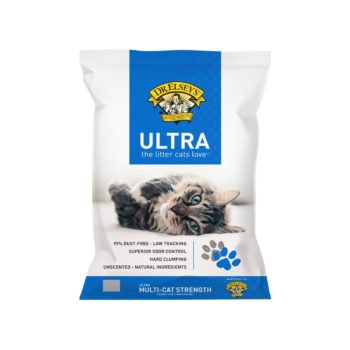









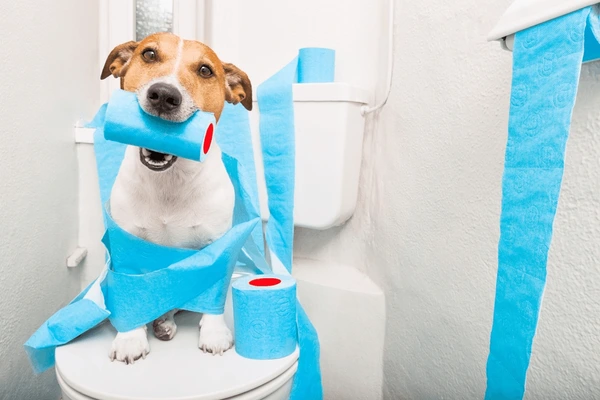
Looking for effective remedies for pet diarrhoea? Learn natural and safe ways to soothe your pet’s tummy troubles, when to seek veterinary help, and how the Best Pet Clinic in Kolkata ensures your furry friend’s long-term wellness. Every pet parent knows that uneasy feeling when their furry companion suddenly refuses food, becomes lethargic, or has a bout of diarrhoea. While an occasional upset stomach might not be alarming, persistent diarrhoea in pets can signal something deeper. Understanding its causes, identifying safe home care options, and knowing when to consult a vet are vital for your pet’s recovery and overall health. Understanding Why Pets Get DiarrhoeaSpotting the Warning SignsGentle and Effective Home Remedies for Pet Diarrhoea1. Fasting for 12–24 Hours (Only for Adult Pets)2. Hydration with Electrolytes3. Bland Diet for Recovery4. Probiotics for Gut Health5. Slippery Elm Bark or Psyllium Husk6. Bone Broth for Strength and Hydration7. Activated Charcoal (Only Under Vet Advice)What to Avoid When Treating Pet Diarrhoea at HomeWhen to Visit the VetPreventive Tips for a Healthy Digestive SystemHow Expert Veterinary Guidance HelpsFrequently Asked Questions (FAQs)Healing Your Pet’s Tummy with Care and Confidence This guide explores simple, vet-approved remedies for pet diarrhoea, preventive care practices, and when professional help becomes essential. Understanding Why Pets Get Diarrhoea Diarrhoea in pets isn’t a disease but rather a symptom of something disrupting their digestive system. It can range from mild and temporary to severe and life-threatening. Common causes include: Sudden diet changes: Switching food brands or types too quickly. Food intolerance or allergies: Certain ingredients like dairy, soy, or gluten may upset your pet’s stomach. Bacterial or viral infections: Parvovirus, Salmonella, or E. coli are common culprits. Parasites: Worms or protozoa can irritate the intestines. Stress: Loud noises, travel, or separation anxiety can cause digestive distress. Medication side effects: Antibiotics or anti-inflammatory drugs can disturb gut flora. Spotting the Warning Signs Pet diarrhoea often looks like loose or watery stools, but that’s not all. Pay attention to accompanying symptoms such as: Lethargy or weakness Vomiting Loss of appetite Fever Dehydration (dry nose or gums, sunken eyes) Blood or mucus in stool If any of these appear or persist beyond 24–48 hours, professional veterinary care becomes crucial. Gentle and Effective Home Remedies for Pet Diarrhoea Before trying home remedies, ensure your pet is not severely dehydrated or showing serious symptoms. These mild, natural approaches are ideal for short-term or mild diarrhoea cases. 1....
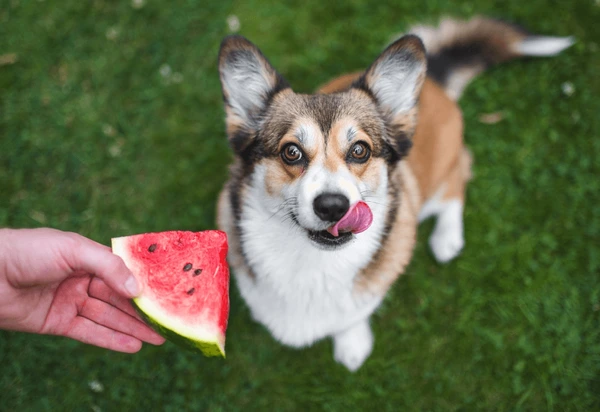
Wondering which fruits are safe and healthy for your furry friend? This expert guide from a reputable Pet Clinic explains how to safely introduce fruits for dogs, their nutritional benefits, portion control tips, and which fruits to avoid for a balanced and happy pet life. Understanding a Dog’s Nutritional NeedsWhy You Should Include Fruits in Your Dog’s DietSafe Fruits for Dogs — Vet-Approved and Healthy Choices 1. Apples 2. Bananas 3. Watermelon 4. Strawberries 5. Pineapple 6. Pears 7. Oranges (in small amounts) 8. PeachesFruits to Avoid — Important Safety ListHow to Introduce Fruits to Your Dog’s DietPortion Control and Feeding FrequencyRecommended Serving Size by Dog Size:When to Avoid Feeding FruitsExpert Tip — Choosing Organic and Seasonal FruitsCommon Mistakes Pet Parents MakeFAQs on Fruits for DogsHealthy Treats, Happier PetsA Thoughtful Bite for a Healthy Tail As a responsible pet parent, you’ve probably wondered what human foods are safe for your furry friend. Among all food categories, fruits stand out as a colorful, nutrient-rich choice—but are all fruits safe for dogs? Understanding which ones help and which ones harm is essential for your dog’s long-term health and happiness. This comprehensive guide helps you explore the safest fruits for dogs, how much to feed, and which fruits to avoid. Let’s uncover how these natural treats can boost your pet’s wellness when introduced correctly. Understanding a Dog’s Nutritional Needs Dogs are primarily carnivores but thrive best on a balanced diet that includes carbohydrates, fiber, and vitamins. Fruits can serve as natural supplements that add antioxidants, hydration, and minerals—without relying on artificial treats. However, not every fruit is safe. Some contain toxins or excessive sugars that can lead to digestive distress or serious health conditions. So, knowing the difference between beneficial and harmful fruits is crucial. Why You Should Include Fruits in Your Dog’s Diet Adding fruits to your dog’s diet has numerous benefits when done mindfully: Natural Source of Vitamins: Boosts immunity and skin health. Hydration Support: High water content keeps your dog hydrated, especially in hot weather. Digestive Aid: Provides dietary fiber that improves gut health. Energy Boost: Offers natural sugars and potassium for sustained energy. Antioxidant Protection: Helps fight inflammation and supports cell repair. These benefits show why fruits for dogs can be an excellent occasional addition to their meals. Safe Fruits for Dogs — Vet-Approved and Healthy Choices While fruits should never replace your dog’s main diet, the following options...

Learn how to prevent common pet skin infections with expert-backed care tips, hygiene practices, and nutrition advice. Guidance inspired by veterinarians from the Best Pet Clinic in Kolkata to keep your furry friend healthy and itch-free. Understanding Why Pet Skin Infections HappenCommon Types of Pet Skin InfectionsEarly Signs to Watch Out ForHow to Prevent Common Pet Skin Infections1. Maintain Proper Hygiene and Grooming2. Focus on a Balanced Diet3. Control Fleas and Ticks Year-Round4. Keep the Environment Clean5. Regular Health Checkups6. Avoid Common Grooming Mistakes7. Manage Seasonal AllergiesNatural Remedies That Can HelpLifestyle Tips to Keep Your Pet’s Skin HealthyFrequently Asked Questions (FAQs)When It’s Time for Professional CareHealthy Skin, Happier Pets Understanding Why Pet Skin Infections Happen Healthy skin is one of the strongest indicators of a pet’s overall well-being. Yet, many pet owners notice itching, redness, or flaky patches on their furry companions without realizing that these are early signs of skin infections. Whether it’s due to allergies, poor grooming, or parasites, knowing how to prevent common pet skin infections is crucial for maintaining your pet’s comfort and happiness. These infections can affect both dogs and cats, and if ignored, they can quickly worsen and cause long-term discomfort. Common Types of Pet Skin Infections Before you can prevent them, it’s important to recognize the common types: Bacterial Infections (Pyoderma) – Often caused by scratching or biting irritated skin. Fungal Infections (Ringworm or Yeast) – Common in humid conditions and spreads through contact. Parasitic Infections (Mites, Fleas, or Ticks) – These lead to itching, redness, and patchy hair loss. Allergic Dermatitis – Triggered by food, pollen, or dust. Seborrhea – Causes greasy, flaky skin and a distinct odor. Understanding which type your pet has can help you treat and prevent future issues effectively. Early Signs to Watch Out For Pets can’t speak, but their skin often tells the story. Look out for these warning signs: Constant scratching, licking, or chewing of the skin Redness, inflammation, or visible sores Foul odor or greasy patches on fur Hair loss or flaky dandruff-like skin Excessive shedding beyond the normal cycle Spotting these early allows you to take action before things get worse. How to Prevent Common Pet Skin Infections Let’s dive into practical, pet-friendly ways to keep your companion’s skin healthy and infection-free. 1. Maintain Proper Hygiene and Grooming Grooming isn’t just about appearance — it’s about health. Bathe your pet regularly using a mild,...
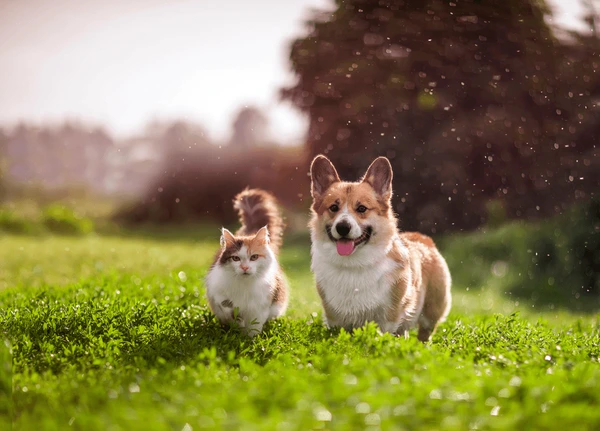
Learn how to care for puppies in monsoon season with practical tips for health, diet, and hygiene. Insights from a reputed pet clinic to help your furry friend stay safe and happy. Understanding Why Monsoon Needs Extra Puppy CareCommon Health Concerns for Puppies in MonsoonHygiene Tips to Keep Puppies SafeDiet Guidelines for Monsoon SeasonWalking and Outdoor Care for PuppiesProtecting Puppies from Pests and InfectionsCreating a Comfortable Indoor EnvironmentHow Monsoon Care Supports Long-Term HealthExpert Insights from a Professional Pet ClinicFAQs About Puppy Care in MonsoonA Thoughtful Takeaway for Pet Parents Understanding Why Monsoon Needs Extra Puppy Care Monsoon brings relief from summer heat, but it also welcomes challenges for pet parents. Humidity, dampness, and stagnant water create a perfect environment for infections, skin problems, and digestive issues. Puppies, with their developing immune systems, are more vulnerable during this season. Knowing how to care for puppies in monsoon is essential to keep them healthy, active, and free from seasonal ailments. Common Health Concerns for Puppies in Monsoon Skin infections due to constant dampness. Ticks and fleas thriving in humid weather. Stomach upsets from contaminated food or water. Ear infections caused by moisture. Respiratory issues from sudden weather changes. Hygiene Tips to Keep Puppies Safe Maintaining hygiene is the first line of defense during the rains. Dry your puppy’s paws and coat every time they come inside from a walk. Use antibacterial paw wipes or mild pet-safe cleansers. Keep bedding in a dry, warm corner to prevent fungal growth. Clip excess fur around the paws to reduce mud accumulation. Bathe only when necessary, and always dry thoroughly. Diet Guidelines for Monsoon Season Nutrition plays a big role in building immunity. Prefer home-cooked meals with lean proteins and fresh vegetables. Avoid raw food that may carry bacteria in damp weather. Add supplements like Omega-3 for skin and coat health (after vet consultation). Ensure clean, boiled, or filtered drinking water to prevent stomach infections. Feed in small portions to aid digestion. Walking and Outdoor Care for Puppies Rainy days shouldn’t mean less exercise. Puppies need movement for proper growth. Choose dry times of the day for walks, preferably mornings. Use a raincoat designed for pets if the downpour is unavoidable. Carry a dry towel to wipe them immediately after walks. Avoid stagnant water puddles, which may contain harmful bacteria. Protecting Puppies from Pests and Infections Monsoon is prime time for ticks, fleas, and worms. Regularly...
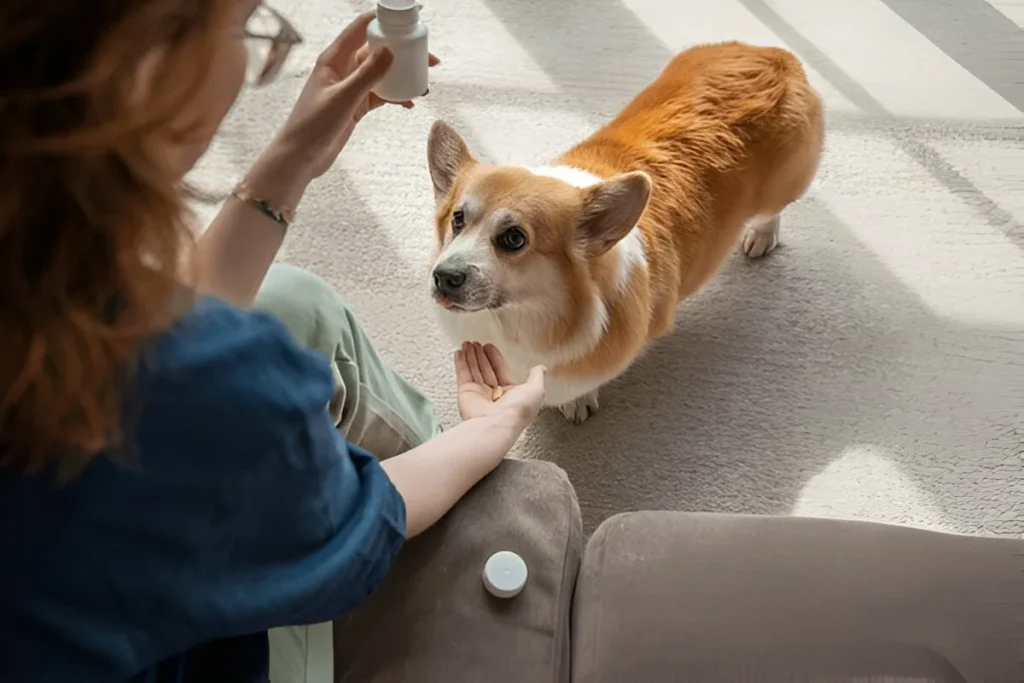
Probiotic supplements for dogs support digestion, immunity, and overall health. Learn how a reputed pet clinic guides pet owners in choosing safe and effective options. Why Gut Health Matters for DogsUnderstanding Probiotics for DogsBenefits of Probiotic Supplements for Dogs1. Improved Digestive Function2. Stronger Immunity3. Allergy Relief4. Better Nutrient Absorption5. Support for Senior DogsChoosing the Right Probiotic Supplements for DogsSigns Your Dog Might Need ProbioticsNatural Sources of Probiotics for DogsRisks and PrecautionsProbiotic Supplements for Dogs in Everyday UseFAQs About Probiotic Supplements for DogsWhy Expert Guidance Is EssentialFinal Thoughts on Supporting Canine Gut Health Why Gut Health Matters for Dogs When it comes to a dog’s health, most owners focus on vaccinations, diet, and exercise. However, what often gets overlooked is gut health. The digestive system isn’t just about processing food—it also houses a large portion of the immune system. An imbalance in gut bacteria can lead to: Digestive upset (gas, diarrhea, constipation). Weakened immunity. Skin allergies. Behavioral issues linked to discomfort. This is where probiotic supplements for dogs play an essential role. Understanding Probiotics for Dogs Probiotics are live beneficial bacteria that help maintain a healthy balance in the digestive tract. Just as humans take probiotics for improved digestion, dogs can also benefit from them in multiple ways. Some commonly used strains in canine probiotics include: Lactobacillus acidophilus – supports digestion and nutrient absorption. Bifidobacterium animalis – reduces diarrhea and promotes gut stability. Enterococcus faecium – aids in maintaining intestinal health. Saccharomyces boulardii – a yeast probiotic effective for chronic diarrhea. Benefits of Probiotic Supplements for Dogs 1. Improved Digestive Function Reduces bloating, gas, and diarrhea. Helps dogs transition to new diets. Restores gut balance after antibiotics. 2. Stronger Immunity A large portion of the immune system is located in the gut. Probiotics enhance immune response, helping dogs fight infections naturally. 3. Allergy Relief By strengthening gut health, probiotics may reduce allergic reactions, especially those related to skin irritations and food sensitivities. 4. Better Nutrient Absorption A balanced digestive tract allows better absorption of proteins, vitamins, and minerals, ensuring optimal growth and energy. 5. Support for Senior Dogs Older dogs often suffer from weaker digestion. Probiotics help them maintain consistent bowel movements and reduce age-related gut problems. Choosing the Right Probiotic Supplements for Dogs Not all probiotics are created equal. Factors to consider include: Strain specificity – Look for strains proven effective in dogs, not just humans. Form – Available as...
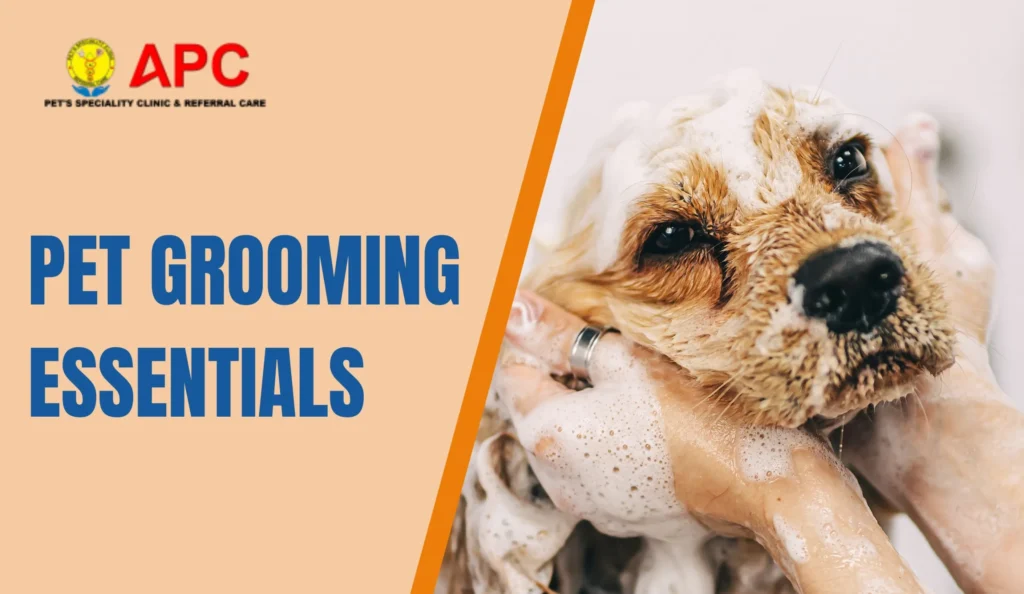
Hello Reader! Welcome to the blog page of APC Pet clinic, one of the best pet clinic in Kolkata. Pets are more than just animals; they are family members who deserve love, care, and attention. One of the most important aspects of pet care is Pet Grooming. Grooming goes beyond keeping your pet looking clean and cute – it plays a crucial role in maintaining their health, hygiene, and overall well-being. At APC Pet Clinic, widely regarded as the best pet clinic in Kolkata, we not only provide professional grooming services but also guide pet parents with essential DIY tips to keep their furry friends happy and healthy at home. Why is Pet Grooming Important?DIY Pet Grooming Tips Every Pet Parent Should Know1. Brushing the Coat2. Bathing3. Nail Trimming4. Ear Cleaning5. Dental CareBenefits of Professional Pet Grooming ServicesChoosing Between DIY and Professional GroomingStep-by-Step Bath and Blow-Dry Routine for Anxious Dogs1. Prepare the Environment2. Calm Your Dog3. Brush the Coat4. Wet the Coat Slowly5. Apply Shampoo6. Rinse Thoroughly7. Towel Dry Gently8. Blow Dry with Care9. Final Brush and CheckStep-by-step safe nail trimming guide for dogs1. Gather Your Supplies2. Get Your Dog Comfortable3. Choose a Quiet, Well-Lit Space4. Extend the Nail5. Identify the Quick6. Trim the Nail7. Smooth the Edges8. Repeat for Each Nail and the Dewclaws9. Reward and Reassure10. Handle Accidental BleedingChecklist for a basic DIY grooming session for nervous dogsBasic DIY Grooming Checklist for Nervous DogsEnvironmentTools & SuppliesGrooming StepsHow to safely remove severe mats without shaving?1. Prepare the Right Tools2. Choose a Calm Environment3. Apply Detangling Spray4. Start Gently Brushing Around the Mats5. Use a Dematting Comb or Rake6. Split Large Mats7. Carefully Trim Only If Absolutely Necessary8. Regular Brushing After Dematting9. Seek Professional Help If NeededFAQConclusion Why is Pet Grooming Important? Regular Pet Grooming helps in: Maintaining Hygiene – Brushing, bathing, and cleaning reduce dirt, odor, and bacterial growth. Preventing Health Issues – Grooming helps identify ticks, fleas, infections, and skin problems early. Comfort & Happiness – Clean coats, trimmed nails, and proper ear care prevent discomfort and keep pets active. Bonding Time – Grooming strengthens the bond between pets and owners. Whether done at home or professionally, grooming is an essential part of your pet’s lifestyle. DIY Pet Grooming Tips Every Pet Parent Should Know While professional grooming ensures thorough care, many simple grooming tasks can be done at home. Here are some essentials: 1. Brushing the Coat...
Appointments are recommended to ensure your pet receives timely care. However, walk-ins are accommodated based on availability.
APC Pet Clinic provides emergency veterinary care during regular business hours. For after-hours emergencies, they can refer you to a nearby emergency veterinary hospital.
APC Pet Clinic offers a wide range of veterinary services including wellness exams, vaccinations, dental care, surgical procedures, and diagnostic testing.
APC Pet Clinic is staffed with experienced veterinarians who are passionate about animal health and well-being. Each veterinarian is licensed and trained to provide comprehensive veterinary care.
Yes, APC Pet Clinic offers grooming services such as baths, nail trims, and haircuts. They also provide boarding facilities for pets needing overnight care.
APC Pet Clinic accepts payment by cash, credit cards (Visa, MasterCard, American Express), and sometimes offer financing options for larger procedures. They do not accept personal checks.
APC Pet Clinic is open at 10am . They are closed on to 8pm.
APC Pet Clinic primarily treats dogs and cats, but they may also provide care for small mammals like rabbits, guinea pigs, and ferrets.
Our experience with APC Pet Clinic has been nothing short of fantastic. The care and attention they provided to our aging cat, Whiskers, were exemplary. From routine check-ups to a recent dental procedure, the veterinarians and staff demonstrated unparalleled professionalism and genuine concern for Whiskers' well-being. We appreciate their personalized approach and the warm environment they create. APC Pet Clinic has become our trusted partner in ensuring Whiskers' health and happiness."
I cannot thank APC Pet Clinic enough for the exceptional care they provided to our rescue dog, Buddy. From the moment we stepped into the clinic, we were met with warmth and compassion. The veterinarians took the time to understand Buddy's history and unique needs, offering tailored advice and treatments. Their dedication and expertise were evident during Buddy's surgery, and the follow-up care was exceptional. APC Pet Clinic is more than a clinic; they're an invaluable support system for pet owners like us..
I've been bringing my pets to APC Pet Clinic for years now, and I couldn’t be happier with the care they receive. The entire team, from the receptionists to the veterinarians, shows genuine love and dedication to animals. Whether it's a routine check-up or an unexpected health issue, they handle it with expertise and kindness. APC Pet Clinic is the place I trust for the well-being of my furry companions, and I highly recommend them to any pet owner seeking exceptional care
Are You Searching For
